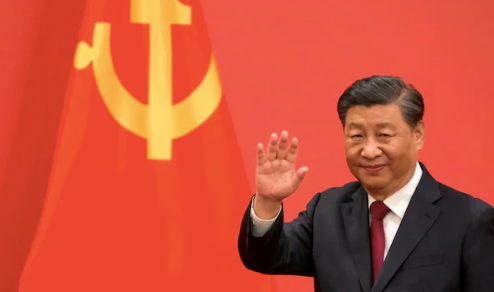
In a significant diplomatic shift, Chinese President Xi Jinping chose to skip the BRICS summit for the first time since taking power in 2012. The 2025 summit held in Rio de Janeiro marked the 17th edition of the bloc’s annual meeting, and Xi’s absence has raised many eyebrows around the world. China sent Premier Li Qiang as its representative, officially citing scheduling conflicts. Analysts believe that this move reflects deeper political and economic priorities after unfolding within China and the evolving role of BRICS in a multipolar world.
Xi’s absence from the BRICS summit is coming at a time when China is battling domestic economic challenges, along with a property crisis, high youth unemployment, and weakened industrial growth. Rather than flying to Brazil for symbolic diplomacy, Xi appeared to be focusing inward, overseeing preparations for the country’s next Five-Year Plan. This might stabilize the faltering economy.
However, Xi’s no-show is not just about economic priorities. There are also subtle diplomatic tensions between China and Brazil. Reports have surfaced that a recent visit by Brazil’s First Lady to China may have included a protocol misstep when she criticized TikTok—a Chinese company—during official engagements. While Beijing has not officially linked this to Xi’s decision, observers believe such incidents may have contributed to a coolness in bilateral relations. Additionally, Xi and Brazil’s President Lula da Silva have already met multiple times this year, lessening the urgency for another in-person meeting.
Xi’s absence from the BRIC summit is highly symbolic. China is the largest economy in the BRICS bloc. It contributes to nearly 60% of its total GDP. Xi’s physical presence at such summits has traditionally been seen as a sign of China’s commitment to leading the bloc.
From a geopolitical standpoint, Xi’s absence is highly symbolic. China is the largest economy in the BRICS bloc, contributing nearly 60% of its total GDP. Xi’s physical presence at such summits has traditionally been seen as a sign of China’s commitment to leading the bloc, especially in promoting alternative institutions like the New Development Bank. Without him, China’s ability to shape the narrative and forge behind-the-scenes deals diminishes. His decision also follows Russian President Vladimir Putin’s continued absence due to an ICC arrest warrant, further weakening the visual unity of the BRICS leadership.
This opens the door for other members—particularly India, Brazil, and South Africa—to take center stage in shaping the summit’s agenda. With new entrants such as Iran, the UAE, and Egypt joining the expanded BRICS platform, the bloc may begin to shift toward regional cooperation and South-South development goals, rather than positioning itself solely as a counterweight to the West. Xi’s absence therefore creates space for a redistribution of leadership within BRICS, which may or may not align with China’s long-term vision for the grouping.
Ultimately, Xi Jinping’s decision not to attend the BRICS summit is not a mere scheduling issue—it is a strategic signal. It indicates a recalibration of China’s global engagement strategy, prioritizing domestic recovery over external symbolism. It also reflects a growing sense in Beijing that BRICS, despite its ambitions, may not require Xi’s direct involvement to function or reflect China’s interests effectively. Yet, his absence has undoubtedly weakened the summit’s geopolitical impact and raised questions about the future coherence and clout of BRICS as a global coalition.
In conclusion, while China remains committed to the BRICS framework, Xi’s absence marks a turning point. It reflects both the growing internal pressures within China and the changing dynamics of global diplomacy, where even the most visible leaders may choose pragmatism over presence. Keep Reading Questiqa.com for more news.

